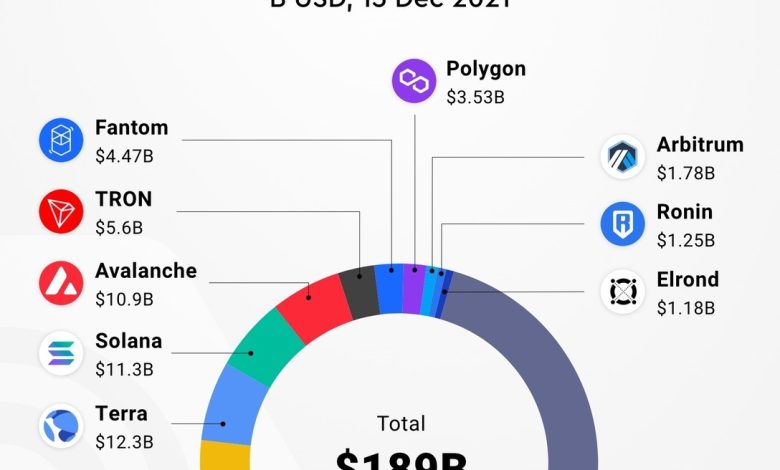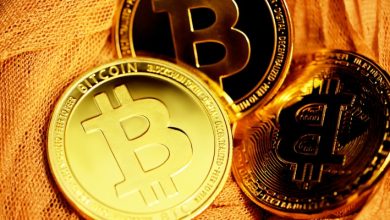DeFi: The Fastest-Growing Sector in Crypto

- Understanding the Basics of DeFi
- Exploring the Benefits of Decentralized Finance
- The Rise of DeFi Platforms and Applications
- Challenges and Risks in the DeFi Sector
- Regulatory Concerns Surrounding DeFi
- Investing in DeFi: Tips for Success
Understanding the Basics of DeFi
Decentralized Finance, or DeFi, is a rapidly growing sector within the cryptocurrency industry that is revolutionizing traditional financial systems. DeFi refers to a variety of financial applications in cryptocurrency or blockchain that aim to provide alternatives to traditional financial intermediaries such as banks and brokerages.
One of the key features of DeFi is its emphasis on decentralization, which means that these financial applications operate without a central authority or intermediary. Instead, transactions are conducted directly between users through smart contracts on the blockchain.
DeFi platforms offer a wide range of services, including lending and borrowing, decentralized exchanges, derivatives trading, and asset management. These services are accessible to anyone with an internet connection, allowing for greater financial inclusion and accessibility.
By leveraging blockchain technology, DeFi platforms can offer greater transparency, security, and efficiency compared to traditional financial systems. Users retain control of their funds at all times and can access financial services without needing to rely on third parties.
Overall, DeFi represents a significant shift in the way we think about and interact with financial services. As the sector continues to grow and evolve, it is important for investors and users to understand the basics of DeFi and the opportunities it presents in the cryptocurrency space.
Exploring the Benefits of Decentralized Finance
Decentralized Finance, or DeFi, is rapidly gaining popularity in the cryptocurrency space due to its numerous benefits and advantages. Unlike traditional finance systems that rely on centralized authorities such as banks or governments, DeFi operates on a decentralized network of smart contracts and protocols built on blockchain technology.
One of the key benefits of DeFi is its accessibility. Anyone with an internet connection can participate in DeFi platforms and services, without the need for a traditional bank account or credit check. This opens up financial opportunities to a global audience, especially those who are unbanked or underbanked.
Another advantage of DeFi is its transparency. Since transactions are recorded on a public blockchain, users can easily verify and track their funds in real-time. This level of transparency helps to build trust among participants and reduces the risk of fraud or manipulation.
Furthermore, DeFi offers users greater control over their assets. With DeFi platforms, individuals can manage their funds directly through their own wallets, without the need to rely on third parties to hold or transfer their assets. This gives users more autonomy and security over their finances.
Overall, the benefits of DeFi are clear – accessibility, transparency, and control. As the fastest-growing sector in the crypto industry, DeFi is revolutionizing the way we think about finance and empowering individuals to take control of their financial future.
The Rise of DeFi Platforms and Applications
The rise of decentralized finance (DeFi) platforms and applications has been one of the most significant trends in the cryptocurrency space in recent years. DeFi platforms offer users the ability to engage in various financial activities without the need for traditional intermediaries such as banks or brokerages. This has led to a surge in interest and investment in DeFi projects, making it one of the fastest-growing sectors in the crypto industry.
DeFi platforms are built on blockchain technology, which allows for secure and transparent transactions without the need for a central authority. This has opened up a world of possibilities for users, including lending, borrowing, trading, and earning interest on their cryptocurrency holdings. With the rise of DeFi platforms, users have more control over their finances and can access a wide range of financial services that were previously only available to a select few.
One of the key features of DeFi platforms is the use of smart contracts, which are self-executing contracts with the terms of the agreement directly written into code. This eliminates the need for intermediaries and ensures that transactions are executed automatically when certain conditions are met. Smart contracts have revolutionized the way financial transactions are conducted, making them faster, cheaper, and more secure.
As DeFi platforms continue to evolve and innovate, we can expect to see even more growth in this sector. Developers are constantly working on new applications and services that leverage the power of blockchain technology to create decentralized financial systems that are more efficient and accessible to a global audience. With the rise of DeFi platforms, the future of finance is looking more decentralized and inclusive than ever before.
Challenges and Risks in the DeFi Sector
As the DeFi sector continues to experience rapid growth, it also faces a number of challenges and risks that investors and users need to be aware of. One of the main challenges in the DeFi space is the issue of security. With the decentralized nature of DeFi platforms, there is a higher risk of smart contract vulnerabilities and hacking attacks. This has led to several high-profile incidents where users have lost significant amounts of funds.
Another challenge in the DeFi sector is the issue of regulation. As DeFi platforms operate outside of traditional financial systems, they often fall into a regulatory gray area. This lack of clear regulations can lead to uncertainty for investors and users, as they may not know how their activities will be treated by authorities.
Additionally, the fast-paced nature of the DeFi sector can also pose risks. Projects in the DeFi space often move quickly, with new platforms and protocols being launched regularly. While this can create opportunities for investors, it also means that due diligence is crucial to avoid falling victim to scams or projects with unsustainable models.
Regulatory Concerns Surrounding DeFi
One of the major challenges facing the DeFi sector is the regulatory concerns that have arisen as a result of its rapid growth. Regulators around the world are struggling to keep up with the pace of innovation in the decentralized finance space, leading to uncertainty and potential legal risks for DeFi projects and users alike.
One of the main issues that regulators are grappling with is the question of how to apply existing financial regulations to DeFi platforms. Because these platforms operate in a decentralized manner, it can be difficult to determine who is ultimately responsible for ensuring compliance with the law. This has led to a lack of clarity around issues such as anti-money laundering (AML) and know your customer (KYC) requirements, which are key components of traditional financial regulation.
Another concern for regulators is the potential for DeFi platforms to be used for illicit activities such as money laundering and terrorist financing. Because transactions on these platforms are often anonymous and can be conducted across borders with ease, there is a risk that they could be exploited by bad actors. This has led to calls for greater oversight and regulation of the DeFi space to prevent these types of activities from taking place.
Overall, while DeFi offers many exciting opportunities for innovation in the financial sector, it also presents significant challenges for regulators. Finding the right balance between fostering innovation and protecting consumers and the financial system will be key to ensuring the long-term success of the DeFi sector.
Investing in DeFi: Tips for Success
When it comes to **investing** in **DeFi**, there are several **tips** that can help **ensure** **success** in this **fast-growing** sector of **crypto**. **DeFi** **investing** can be **lucrative**, but it also **comes** with its **risks**. Here are some **strategies** to **consider** when **venturing** into the world of **DeFi**:
- **Do** your **research**: Before **investing** in any **DeFi** **project**, make sure to **thoroughly** **research** the **team** behind it, the **technology** **being** used, and the **overall** **market** **trends**. **Understanding** the **fundamentals** of a **project** can **help** **mitigate** **risk**.
- **Diversify** your **portfolio**: **Diversification** is **key** to **reducing** **risk** in **crypto** **investing**. **Spread** your **investments** **across** **different** **DeFi** **projects** to **minimize** the **impact** of any **single** **failure**.
- **Stay** **updated**: The **DeFi** **space** **moves** **quickly**, with **new** **projects** **emerging** **regularly**. **Stay** **informed** about the **latest** **developments** and **trends** to **make** **informed** **investment** **decisions**.
- **Use** **risk** **management** **strategies**: **Consider** **using** **stop-loss** **orders** and **limit** **orders** to **protect** your **investments** from **sudden** **price** **swings**. **Risk** **management** is **crucial** in **DeFi** **investing**.
- **Start** **small**: **When** **getting** **started** in **DeFi**, **consider** **starting** with a **small** **investment** to **test** the **waters**. **As** you **gain** **experience** and **confidence**, you can **gradually** **increase** your **investment** **size**.
By **following** these **tips**, **investors** can **position** themselves **for** **success** in the **rapidly** **evolving** world of **DeFi**. **Remember** to **stay** **informed**, **manage** **risk** **effectively**, and **continuously** **adapt** to **changing** **market** **conditions**.




